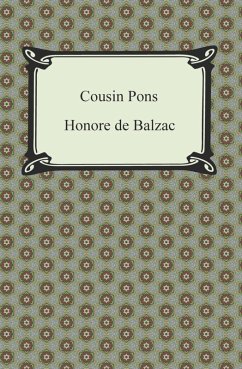Written as a companion piece to "Cousin Bette," "Cousin Pons" is another tale displaying Honore de Balzac's contempt for nineteenth-century French society. The aged musician Sylvain Pons has very little in his life. His only happiness comes from dining with his extended family and from admiring his antique collection. However, his distant relatives hold contempt for the meager Pons and disdain for his treasures. Yet, when the family discovers that Pons' prized collection is actually quite valuable, they begin to whittle away at the man and his possessions, slowing taking away the only prized things in his life. Serving as a tragic comedy, with "Cousin Pons," Balzac wanted to make a statement about how society can mistreat its citizens when the focus is on possessions rather than happiness. As is typical of most Balzac stories, there are very few redeeming characters; each person falls short of genuinely caring about each other. This story is found in "The Human Comedy," a large collection of interlinked short stories and novellas Balzac wrote describing life in the French Restoration period. While "The Human Comedy" is one of his finest works, Balzac is also a renowned playwright. His close examinations of French society are hailed as prime examples of realism and the social condition of all classes. In his works, rather than individuals causing their own strife, social problems are caused by class, money, and ambition.
Dieser Download kann aus rechtlichen Gründen nur mit Rechnungsadresse in A, D ausgeliefert werden.









